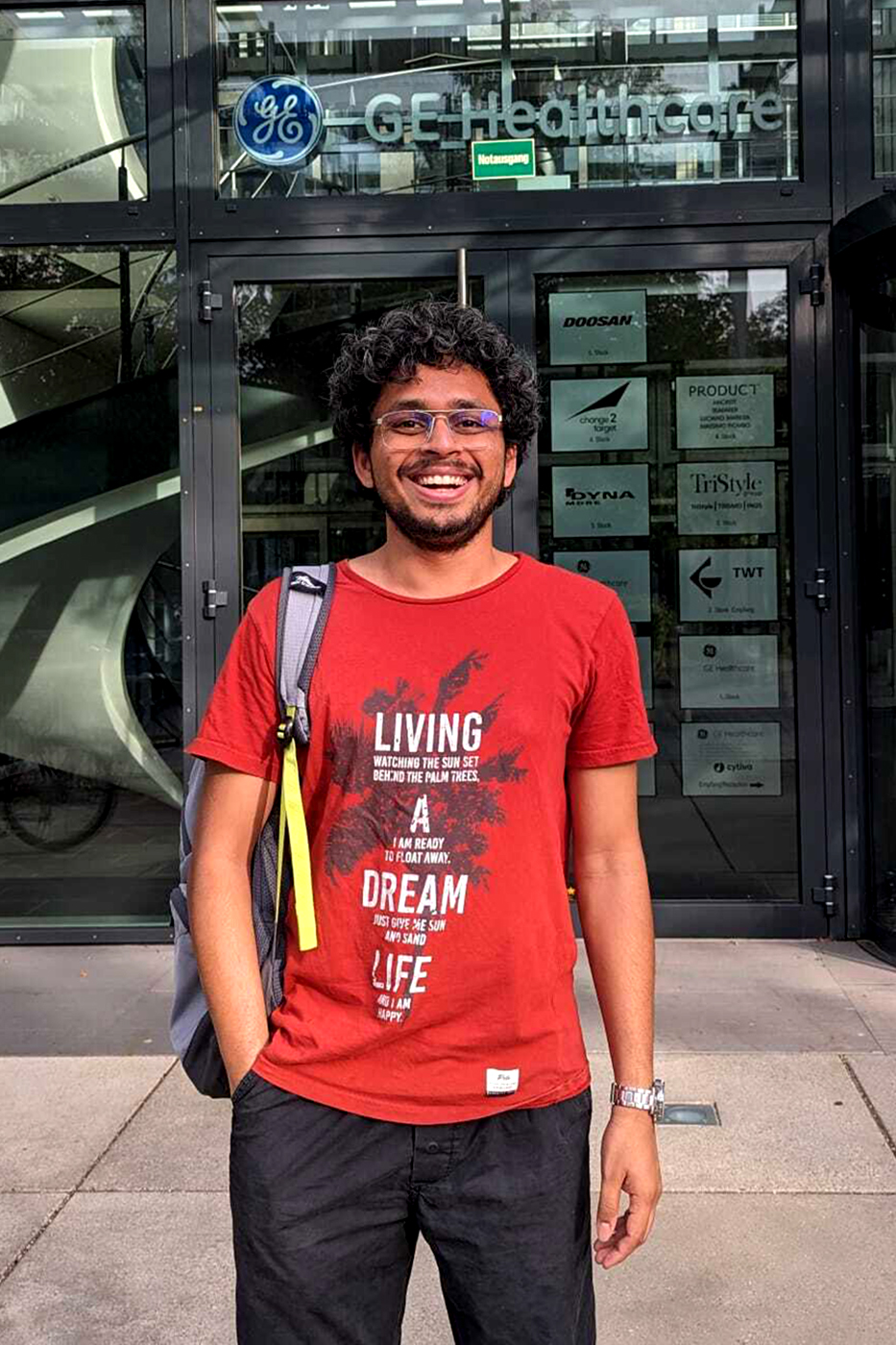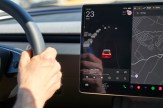How can we make robot cars safer? Northeastern student examines emerging technology as part of co-op in Germany

Srinivas Peri hopes to one day develop robots used to mine the surface of Mars.
“It might be too ambitious right now, but that’s a thing I’m looking forward to,” the Northeastern robotics graduate student says, noting he has quite a bit to learn before accomplishing that goal.

Since starting the masters in robotics program at the university last September, Peri has been able to learn more about the technologies that make those kinds of robots tick — from their navigation and sensing capabilities to the mechanisms and control systems that enable their movement.
He’s also getting some real-world experience.
Peri is in Germany right now completing a six-month co-op at TWT Science & Innovation, a product development consulting firm that works with some of the biggest automotive and technology companies in the world, including BMW, Audi and Siemens.
Peri is specifically learning about autonomous vehicles, researching and developing solutions to help bring the technology to more businesses and consumers. He is particularly interested in understanding traffic environments and the conditions autonomous vehicles best need to navigate.
The “robot cars” out in the field today are navigating in a world largely designed for humans, he says.
“Our entire traffic model is based on human intentions, not from the perspective of robot taxis or autonomous vehicles,” he says. “For this transition to be done, a lot of groundwork has to be done.”
Peri has been in Germany since June, and he has been able to access some next-level technologies. One of the biggest reasons he wanted to complete his co-op at TWT was because of its proprietary simulation technology, which is designed to test environments for autonomous vehicles, he says.
And he’s taking advantage of the lessons and skills he learned in his first few semesters at Northeastern, particularly in courses he took centered on robot sensing, computer vision and pattern recognition.
Peri’s interest in robotics began while he was an undergraduate student in India getting a bachelor’s degree in electronics and communication.
He joined the university’s robotics club his freshman year and became fascinated with how the systems worked.
“I got tutorials on the small parts of the robots — basically how the robot is controlled and how the brain of a robot operates,” he says.
He eventually became “a technical head” at the club, which meant he served as a guide for underclassmen who wanted to learn more about underlying technologies powering the robots.
Outside of the club, he did an internship at Godi Energy, an energy research company in India that at one point used robots to develop new products. That’s where Peri was first exposed to lidar sensors, a foundational technology that uses laser pulses to help robots navigate their environments.
When it came time to apply to graduate school, Peri was drawn to Northeastern for its strong co-op culture, he says. Additionally, he was interested in taking a specific course at the university — “Autonomous Field Robotics.”
The 7000-level course is taught by Hanumant Singh, an electrical and computer engineering professor. In the course students take a deep dive on a range of robotic systems, including underwater robots and unmanned aerial systems.
Peri hasn’t had a chance to take the class yet, but it’s one he is looking forward to greatly.
“It deals with the current autonomous vehicle trends,” he says.
Throughout the co-op at TWT, Peri has divided his time between his own individual research projects and working on industrial products used by the company’s customers.
He couldn’t share full details about his research or the products since the technology being developed is classified but he noted the experience directly ties in with his areas of interest and expertise.
For example, some of the software he uses requires knowledge of C++, a high-level programming language. Luckily, Peri has spent years learning it.
Peri is living in an apartment provided by TWT in Munich and takes public transit to get to work every day. It’s about a 40-minute trip. He’s in the office five days a week from around 8:30 a.m. to 5 p.m.
He’s still getting used to living in Germany, but he’s finding the experience rewarding overall.
“I’m just setting up things now for a future I’m looking forward to,” he says.
Cesareo Contreras is a Northeastern Global News reporter. Email him at c.contreras@northeastern.edu. Follow him on Twitter @cesareo_r.






